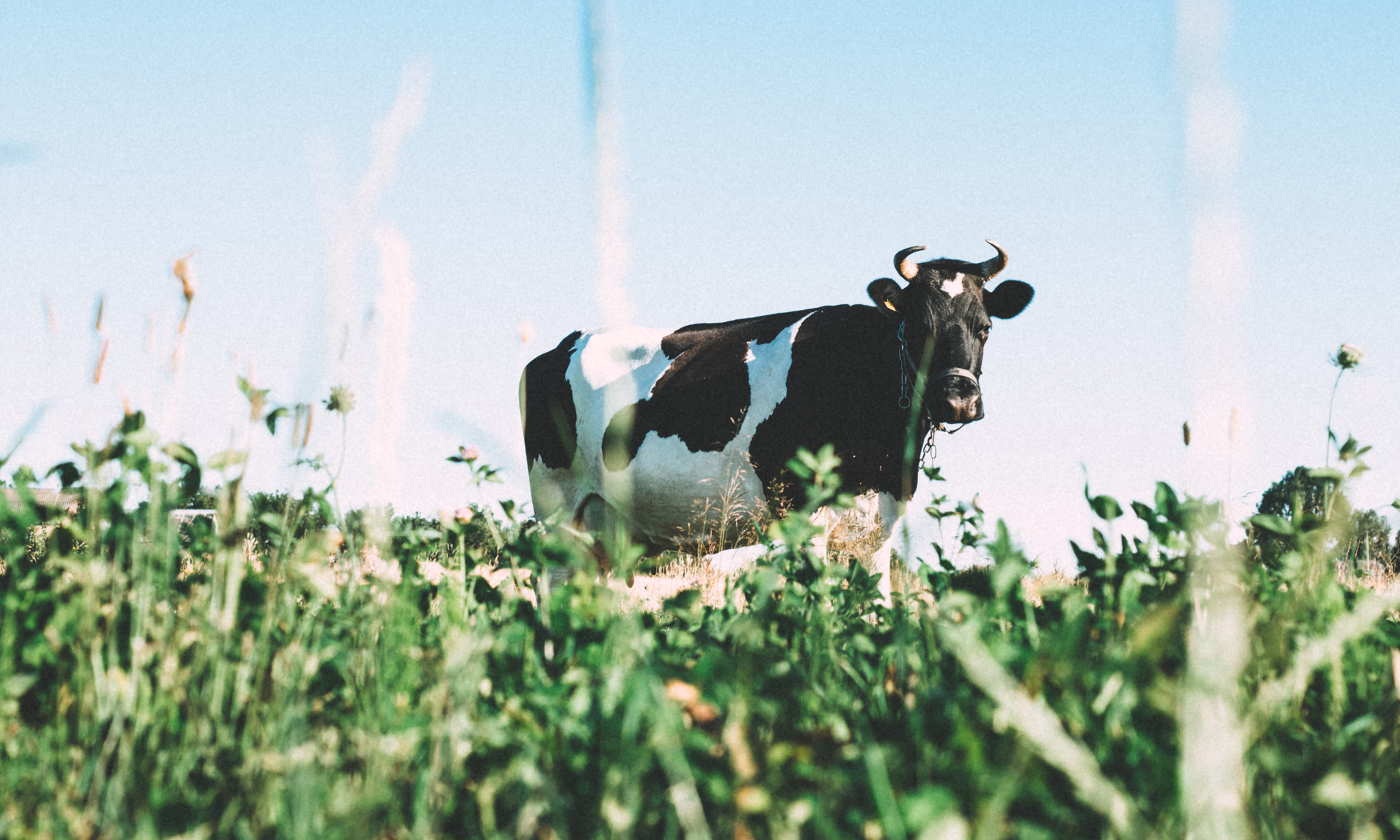Ever wondered if grass-fed beef is really better for you compared to grain-fed? Here are the potential benefits to consider for both our health and planet.
BY: KIM DENKHAUS, MS, RD
WHAT EXACTLY ARE THE HEALTH BENEFITS OF GRASS-FED BEEF WHEN COMPARED TO GRAIN-FED BEEF?
Grass-fed beef is typically a leaner cut of beef than grain-fed beef. Although grass-fed and grain-fed cattle may both start out pasture-raised, after about 6 months, the grain-fed cattle typically moved to a fed-lot where they graze on corn, and other grains to speed up the growth process. Pasture raised cattle are left to roam and forage, hence their leaner body composition.
Recent studies suggest that grass-fed beef may be higher in conjugated linoleic acid (CLA), omega-3 fatty acids, Vitamins A and E. However, it is important to keep in mind, that regardless of grass-fed vs. grain-fed, beef is not considered a rich source of omega-3 fatty acids: a fatty fish like wild salmon, mackerel, or sardines would be a better source of omega-3 fatty acids.
IS THERE AN OFFICIAL WAY TO DETERMINE THE QUALITY OF GRASS-FED BEEF?
There has been some debate over the certification standards for grass-fed cattle not being clearly defined. Consumers should look for 100% grass-fed, or Pennsylvania Certified Organic (PCO) 100% GrassFed on the food label. The PCO 100% Grass Fed Certification Program is the first third-party verification system to certify U.S. grass-fed meat and dairy products.
In the U.S., if beef is labeled grass-fed but does not carry a USDA certification, the beef could be the product of various mixtures of both grass-fed and grain-fed. The type and variety of grass available to the cattle, as well as the bread of cattle may have a significant impact on the nutritional health benefits of grass-fed beef.
GRASS-FED BEEF TENDS TO BE A BIT MORE EXPENSIVE. WHAT’S YOUR OPINION ON ITS BENEFITS THAT MAKE IT WORTH THE EXTRA COST?
There has been a lot of hype centered around grass-fed beef in the media, and although there may be some health benefits, there are only a limited number of studies available to compare the benefits of grass-fed vs. grain-fed cattle. Consumers are demanding to know more than ever about the foods they eat. Agriculture is dictated by the market, and there has been an increased yearning for transparency in the food industry, consequently leading to an increase in the demand for grass-fed beef and diary products.
IT SOUNDS LIKE IT’S MORE OF A PERSONAL CHOICE THAN A CLEAR BENEFIT! ARE THERE ANY FOLKS WHO REALLY BENEFIT FROM EATING THIS TYPE OF MEAT?
Health conscious consumers may benefit from eating grass-fed beef. If the consumer has the financial means to purchase grass-fed beef, there may be some health benefits. However, given the current research, it is difficult to determine whether grass-fed beef is worth the premium price tag.
Ultimately, it comes down to the consumer’s preference: how concerned are you, as a consumer, concerned about animal welfare, environmental sustainability, flavor, antibiotic and growth hormone usage, and the extra cost associated with grass-fed beef.
FROM A SUSTAINABILITY STANDPOINT, DO YOU THINK GRASS-FED BEEF IS REALLY SUSTAINABLE?
That is a tough question! Some argue that grass-fed beef is not sustainable in a large scale model, since it is estimated that anywhere from 2 to 10 acres are needed to raise one grass-fed cow. There are about 90 million cattle in the U.S., so that would require a large land mass to raise cows exclusively on grass.
Some believe that sustainably raised grass-fed cattle are treated more ethically than industrial raised cattle, since grass-fed cattle are raised in an environment that is more in line with their natural environment, where they are free to roam, and forage on grass. In a sustainable farming model, the farmers rotate where the cattle graze, and use cattle manure to grow their next cycle of crops. Experts in agricultural sustainability suggest that cattle, and other animals, are needed in order to cycle the nutrients, and keep the eco-system thriving. The idea is that rotationally integrating livestock and crops can provide a healthy sustainable farm that can nourish future generations.
Grass-fed beef may be a healthier alternative to factory farmed grain-fed beef, and it may also be considerably healthier for the environment. However, it is important to keep in mind that grass-fed beef does has an impact on the environment. Ultimately, both grass-fed and grain-fed cattle take a toll on the earth, contributing to climate change and depletion of fossil fuels. Consuming a plant-centric diet, and giving meat more of a supporting role or skipping meat one day a week, like Meatless Monday, can have a profound impact on your health and the health of the planet!
Other References
- Setting New Standards for Grassfed Dairy
- Grass-Fed Beef for Omega-3s?
- Grass-Fed Beef versus Grain-Fed Beef
- Grass-fed vs. Conventional Meat: It’s Not Black or White
- The Truth About Grass-Fed Beef
- The Myth of Sustainable Meat
- NRCS: Balancing your animals with your forage
- Rodaleinstitute.org
- Journal for Critical Animal Studies: “Green” Eggs and Ham? The Myth of Sustainable Meat and the Danger of the Local
HEADER IMAGE: ANGELINA LITVIN
Kim Denkhaus, MS, RD is a Registered Dietitian Nutritionist with her private practice based in Los Angeles and San Francisco. In a modern-day society focused on convenience and fast-paced lifestyles, Kim is on a mission to help people reconnect with food in a sustainable, healthier way. Learn more about Kim’s field-to-fork philosophy in nutrition and connect with her.


Nice content! This really gave me a better understanding about the benefits of grass-fed beef. Thanks a lot for posting!